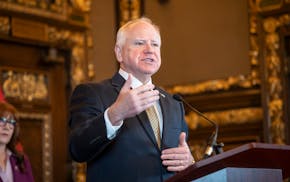A Ramsey County judge has sided with the Minnesota Attorney General's Office this week and ordered tobacco manufacturers to pay what has been calculated as more than $58 million they underpaid the state as part of a historic 1998 settlement.
On Monday, Judge Mark Ireland filed an order for Philip Morris USA and R.J. Reynolds Tobacco Co., and their payment administrator PricewaterhouseCoopers to make full payments using the settlement's original calculation guidelines, and the parties must discuss the appropriate amount of damages and interest for underpayment and any civil penalties, including attorney fees owed to Minnesota. In the order, Ireland called the settlement "clear and unambiguous."
The $6.5 billion settlement required the country's largest tobacco manufacturers to make annual payments to Minnesota based, in part, on the size of the manufacturers' after-tax profits each year. A provision of the settlement increases the size of the annual payments if the companies' current after-tax profits are greater than they were in 1997.
Attorney General Keith Ellison filed a motion in July saying the tobacco companies had recalculated their 1997 profits using a newer corporate tax rate that was lowered in 2018. According to the attorney general's office, the recalculation resulted in Philip Morris and R.J. Reynolds underpaying the state by nearly $10 million a year.
"I'm not surprised Big Tobacco corporations tried to cheat the people of Minnesota," Ellison said in a Tuesday statement. "I am glad my office was able to catch them and stop them. Big Tobacco spent decades lying about the dangers of smoking, and I will not allow them to evade the consequences of their conduct. Big Tobacco will pay every cent they owe Minnesotans."
Neither company immediately responded to requests for comment Tuesday night.
In 1994, Minnesota was one of the first states to sue tobacco companies, arguing they hid the health dangers of tobacco. The payments, which are to be made in perpetuity, were supposed to be considered a way to offset the state's costs associated with smokers, such as increased Medicaid payments.

Delta hiked fares for solo travelers, until Twin Cities travel experts caught the change

In first speech back, UnitedHealth's new CEO pledges to review hot-button issues

A child had measles at Mall of America, concerning state health officials who don't know source

Ramstad: Gov. Walz, things are not getting done in Minnesota

